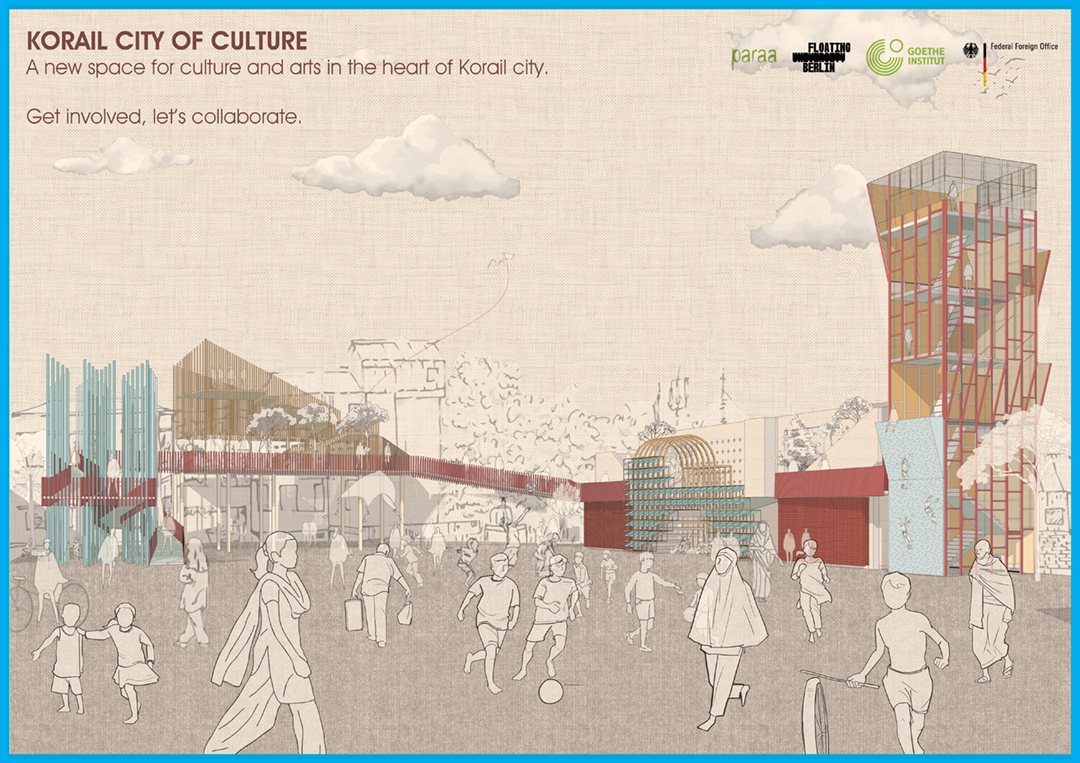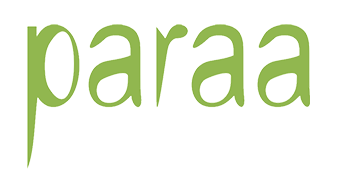
This project is a collaboration with Korail - the largest low-income settlement/neighborhood in Dhaka, Bangladesh, comprising over 50,000 inhabitants. Korail is deeply embedded in recycling practices; the young generation participates in cultural activities. However, the fact that Korail and its residents can contribute something to the cultural and creative industries in the city is ignored by the city society. Korail houses a large portion of the labour needed for rickshaw, maids, small shops etc. for the elite Banani and Gulshan-Baridhara neighbourhood.
The neighborhood has limited to no public spaces except Ershad Mat, a small playground adjacent to the school. This is currently in a very bad state, being unsafe for children to play and others to hang out.
Korail, City of Culture proposes to redefine the notion of design culture and creative industries - in relation to consumption and production. Especially with regard to who, how and where culture is “produced”, and for whom. The project aims to encourage, support and empower cultural workers and producers living, working and playing in Korail in establishing creative industries and cultural practices.
The project will work closely with upto ten young people, a mix of young men and women, along with elders from the community leadership, to train, develop and build a publicly accessible place. The young people will be taught to research, document, lead and develop a network that can sustain the place after it is built.
1) A NEWLY BUILT PUBLIC SPACE
A series of design workshops starts with questions from product design, fashion and urban agriculture. Products for different markets are developed through capacity development, in collaboration between Korail craftsmen and Bangladeshi and German designers, teachers and trainers . The project intends to work with the available materials - from cardboard boxes to disused furniture and scrap metal.
This can be seen as a radical shift away from learning via university taught programs, to more hands-on practical learning experience. In Paraa’s experience over the years, the big challenge has always been to situate design as one with a socially just focus. This has required unlearning, learning about people and understanding their needs first.
2) DESIGNER AS ENABLER
During the month-long festival, workshops, talks and performances are offered by the project participants. The public, media and designers will be invited to participate; The aim is to anchor a more culturally sensitive, design-oriented understanding of urban development in the Global South.
3) KORAIL DESIGN FESTIVAL PILOT
In cooperation with young people and neighborhood groups, a publicly accessible, multifunctional public space will be created - based on low-tech design and sustainability. The skills and knowledge of local artisans and upcycled materials are used. This has been an ongoing project for Paraa for over 2-3 years now, focusing on the needs for access to inclusive public space. In a city starved of Green, open and public spaces, this project will aim to bridge these gaps, both as a model for the city to learn from, and also for the public to engage with.
The overall idea intends to focus on design collaborations, within the community, with the city, and with international partners - Floating University ( who have their own approach to reinterpreting and understanding and working with urban public space )
HOW TO GET INVOLVED:
Join us in transforming the Korail community through our initiative to build a safe, inclusive urban open space. Your collaboration can make a significant impact, providing crucial financial, logistical, and strategic support for the development and sustainability of this community-friendly haven. We are working on three significant aspects of the project outlined below:
HELP US BUILD: Phase 2 Construction
We are coming to the completion of phase 1 of the space. We are now actively seeking support and funds to develop the Watchtower, and additional cultural spaces and ramp to connect two spaces together. Support can be in-kind ( material / labour / connections ) or in donations. Your contribution will not only enhance the well-being of the community but also promote social responsibility and positive impact and be an additional legacy to Dhaka’s dwindling public spaces.
HELP US ORGANISE THE FESTIVAL - DEC 2024
To celebrate the new space, there will be a four-day long festival on site and multiple other spaces in Korail. Your contribution will enable us to organize interactive workshops, exhibitions, and design installations, providing a platform for cultural practitioners and community members to showcase their talents and ideas. We are designing a festival celebrate Korail, and also to create an engaging and impactful festival that celebrates sustainable cultural practices in Korail while fostering community empowerment and urban development.
COLLABORATE WITH US
We are open to collaborate with like-minded individuals / groups / organisations that are keen to engage in Korail, with community, with youth, with diverse design issues/ topics in mind. The Winter School is working with a cohort of students to research and develop ideas for the festival in December 2024. Along with this this, we are keen to utilise the time to expand on collaborations.

ACKNOWLEDGEMENTS
It is important to also acknowledge, beyond the names listed below, there are many friends, well-wishers, community leaders and organisers who have been involved in the development of the project over the years.
2023- ongoing - Korail City of Culture
Korail Youth Team: Shaluk, Hasan, Rafiq, Riyad, Moriom, Popi, Asma, Anamul, Jony, Munia, Rashed
Paraa Team: Nibir, Ruhul, Arefin, Kadir, Khaled, Mahbub, Sharara, Robi, Ayesha, Fahim.
Interns: Siam, Saira, Fariba
Floating University, Berlin: Garance, Rosario, Teresa + co.
Goethe Institut- Bangladesh: Frank, Mormee, Rehana, Nujhat
CADSE Winter School students: Hasib Sarowar, Shaluk Islam, Ramisa Tasnim, Esrat Jahan Onty, Imran Bin Abdul Khalique, Jony Akter, Farzana Faiza, Monika Akter, Taorem Sananu, Farhana Islam, Imran Ahmed, Asma Akter, Hasan, Md. Rafiqul Islam, Farah Naz Nusrat, Rimi Akter, Nujhat Jahan Khan, Amina Rahman Raisa, Anamul Haque Shagor, Shoheli Akter
2021 Urban Spaces funded by Goethe Institut- Bangladesh:
Korail Youth Team: Shaluk, Md.Hasan, Anamul Haque, Md.Najmul Hossain, Md. Rashed, Mosammot Popi Akter, Ria Akter Moriom, Md. Naser Uddin, Md. Rashed Mia, Md. Rubel
Goethe German language students: Abrar Azan, Jannatul Fersaus Rodela
Paraa team: Nowshin Matin, Shehab, Nibir, Ruhul, Arefin, Kadir, Khaled, Prince
Goethe Institut- Bangladesh: Kirsten Hackenbrock
'Korail- City of Culture' is a sustainable urban development initiative supported by the Creative Economy Programme of the Federal Foreign Office (Germany), in collaboration with Goethe-Institut Bangladesh and its local counterpart, Paraa and German partner, Floating e.V. The project aims to support cultural practitioners and producers living, working and playing in Korail in establishing sustainable cultural practices, and to feed this knowledge back into processes of global and local learning and teaching on sustainable urban development.
Image credits | Architectural Design team: Arefin, Kadir, Khaled, Robi Back page- Saira, Fariba | Front phage- Ruhul, Kadir

